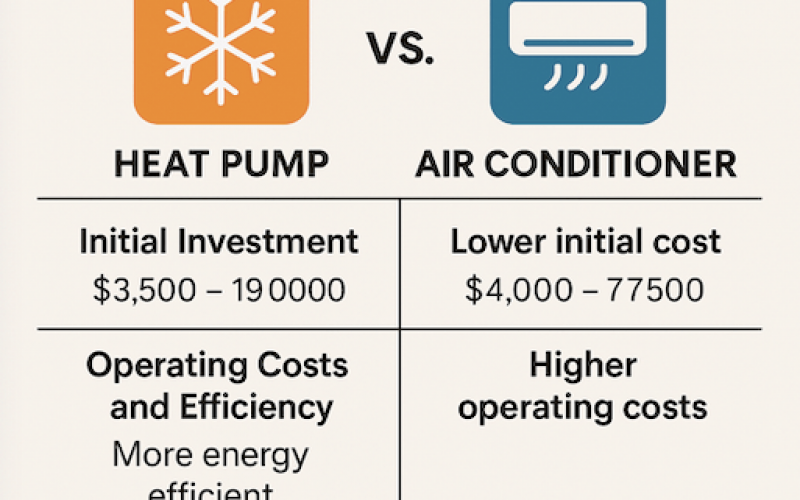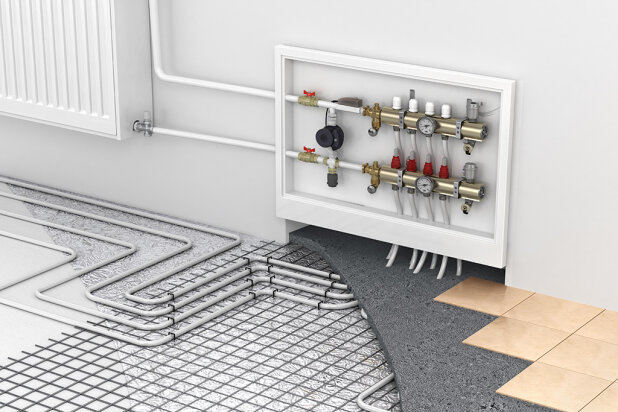When considering climate control systems for your home, understanding the cost differences between heat pumps and air conditioners is crucial. Both systems serve to regulate indoor temperatures but differ significantly in their initial investment, operating expenses, and overall efficiency.
Heat pump vs air conditioner cost
Initial Investment:
- Air Conditioners: Typically, air conditioners have a lower upfront cost, with prices ranging from $4,000 to $7,500, excluding the furnace, which can add $4,000 to $6,500.
- Heat Pumps: Heat pumps generally require a higher initial investment, with costs ranging from $3,500 to $19,000, including installation. However, their dual functionality—providing both heating and cooling—can offset the higher upfront cost over time.
Operating Costs and Efficiency:
- Energy Efficiency: Heat pumps are known for their energy efficiency, often providing 300% to 400% efficiency or higher, meaning they deliver three to four times as much energy in heating as they consume in electricity. This efficiency can lead to significant savings on energy bills.
- Air Conditioners: While effective at cooling, air conditioners generally consume more electricity compared to heat pumps, potentially leading to higher operating costs.
Environmental Impact:
Heat pumps are considered more environmentally friendly, as they do not burn fossil fuels and can significantly reduce greenhouse gas emissions. Their high efficiency contributes to a lower carbon footprint, aligning with global efforts to combat climate change.
Maintenance and Longevity:
- Heat Pumps: With proper maintenance, heat pumps can last between 10 to 15 years. Annual maintenance costs typically range from $50 to $600.
- Air Conditioners: Air conditioners often have a longer lifespan, ranging from 15 to 20 years. However, they may require more frequent maintenance, with repair costs varying between $150 and $5,000, depending on the complexity of the issue.
Additional Considerations:
- Climate Suitability: Heat pumps are most efficient in moderate climates. In extremely cold temperatures, their efficiency can decrease, and additional heating sources might be necessary. Installation Complexity: Installing a heat pump can be more complex, especially if modifications to existing ductwork or electrical systems are required. This complexity can add to the overall installation cost.
In conclusion, while heat pumps involve a higher initial investment, their energy efficiency and dual heating and cooling capabilities can lead to substantial long-term savings and environmental benefits. Air conditioners, though generally less expensive upfront, may incur higher operating costs over time. It’s essential to assess your local climate, energy rates, and specific heating and cooling needs when making a decision. Consulting with HVAC professionals can provide personalized insights tailored to your situation.




